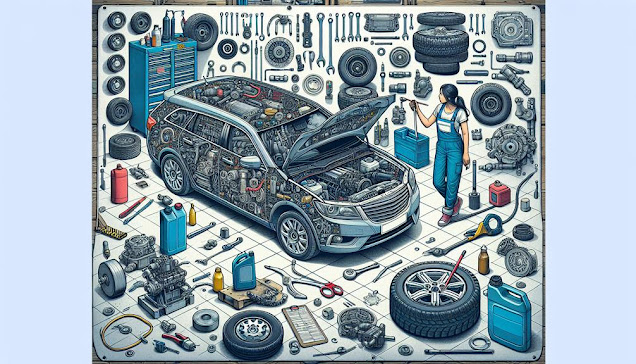Cultivating Excellence in Auto Repair: Key Traits for Mechanic Success
In the auto repair industry, the success of a mechanic hinges not just on technical prowess but on a comprehensive set of skills that blend technical acumen with strong interpersonal capabilities. This guide delves into the essential attributes that form the foundation of a mechanic's professional identity and success.
Technical Expertise: The Cornerstone of Auto Repair
A mechanic's ability to effectively diagnose and resolve vehicle issues forms the cornerstone of their profession. Mastery over a variety of mechanical systems is crucial, but the approach to achieving this expertise is multifaceted.
Comprehensive Mechanical Knowledge
- Engine Expertise: In-depth knowledge of engine components and functionality is essential. This includes the ability to dismantle and rebuild engines, identify wear and tear, and implement effective repairs.
- Advanced Diagnostics: Proficiency in using diagnostic tools to accurately pinpoint issues is critical. A successful mechanic must interpret diagnostic data to make informed repair decisions.
- Electrical Systems: Understanding the intricacies of automotive electrical systems is increasingly important as vehicles become more reliant on electronic components.
Adaptability and Problem-Solving
- Innovative Problem Solving: Beyond standard repairs, a mechanic must be capable of thinking creatively to solve complex problems with innovative solutions.
- Adaptability: Staying current with evolving automotive technology and adapting techniques to accommodate new types of vehicles and repairs.
Interpersonal and Communication Skills
The ability to communicate effectively with customers, colleagues, and suppliers is paramount in the auto repair business. These skills ensure that mechanics can offer a service that transcends the garage, building trust and facilitating smoother operations.
Building Customer Relationships
- Clear Communication: The ability to explain complex repairs in understandable terms is invaluable. It ensures that customers are informed about the work being done, fostering transparency and trust.
- Empathy and Patience: Exhibiting empathy towards customer concerns and patience in explaining the repair process can significantly enhance customer satisfaction and loyalty.
Team Collaboration
- Team Dynamics: Effective communication fosters a positive team environment. Sharing knowledge and skills with peers can improve the efficiency and quality of work.
- Professional Integrity: Maintaining a high level of professionalism, including honesty in customer dealings and reliability in service delivery, reinforces a positive reputation.
Continuous Professional Development
The field of automotive repair is dynamic, with continuous advancements in technology and techniques. A commitment to ongoing professional development is essential for keeping skills relevant and effective.
Lifelong Learning
- Regular Training: Engage in training sessions and workshops to learn about the latest tools, technologies, and repair methods.
- Certification and Licensing: Acquire and maintain certifications to enhance credibility and expertise. Certifications from recognized automotive institutions serve as proof of a mechanic's commitment to their craft and professionalism.
By embodying these key traits, mechanics not only improve their immediate work performance but also their long-term career prospects. The integration of technical skills, interpersonal abilities, and continuous learning creates a robust professional profile that can lead to success and recognition in the auto repair industry.



Comments
Post a Comment